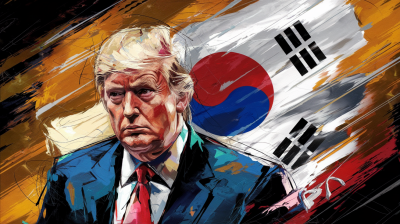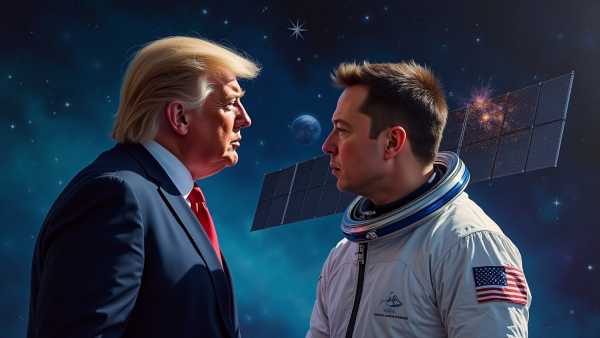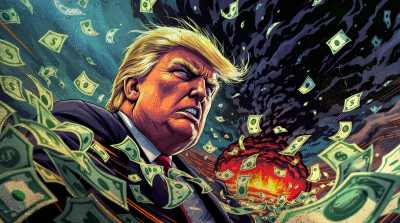
How have you been following the recent political developments in South Korea? No one could have predicted that President Yoon Seok-yul, who was elected just two years ago, would lose the trust of the people so quickly. The fall of Yoon and the rise of Lee Jae-myung, the leader of the Democratic Party of Korea, are of particular interest for the South Korean economy. Coupled with the re-election of President Trump in the US, geopolitical risks surrounding the Korean Peninsula are heightened.
The fall of Yun Seok-yul: what went wrong?
Yun’s failure can be traced to three main factors.
- Failure of economic policies: Yun promised economic growth through pro-business policies, but in reality, the government failed to address issues such as rising prices, a sluggish real estate market, and rising youth unemployment.
- Foreign policy confusion: The government’s unilateral diplomacy with the United States led to a deterioration in relations with China, which adversely affected the ability of South Korean companies to enter the Chinese market.
- Lack of communication: President Yun Suk-yul failed to communicate with the people, which ultimately led to a sharp decline in his approval ratings.
4.Attempts to escape political crisis: In the face of declining approval ratings and political crisis, such as the first lady issue and the opposition crackdown, Yoon appears to have taken extreme measures to turn the situation around.
The accumulation of these problems eventually led Yun to take the extreme option of declaring martial law, which was met with strong public resistance and economic repercussions.
The Rise of Lee Jae-myung: New Hope?
In the wake of Yun’s failure, Lee Jae-myung, the leader of the Democratic Party of Korea, has emerged as the next frontrunner for the presidency. What are his policies?
- Basic income policy: Lee Jae-myung has pledged to give every citizen a basic income of KRW 1 million per year, which could help reduce income inequality and boost domestic demand.
- Basic housing policy: Lee promises to provide long-term rental housing for 30 years or more to those who are homeless. This will increase housing stability and contribute to stabilizing the real estate market.
- Balanced diplomacy: Lee Jae-myung has stated that he will take a pragmatic approach between the United States and China. This could help Korean companies expand into global markets.
These policies of Lee Jae-myung are being seen as an alternative to the failures of the Yoon Seok-yul government.
Will Lee Jae-myung’s policies work?
Let’s analyze Lee Jae-myung’s policies from an economic perspective.
- Basic Income Policy
The basic income policy is related to Keynes’ theory of effective demand. The idea is that by giving cash directly to the people, it will stimulate consumption, which will lead to economic growth.
For example, a basic income of KRW 100,000 per year could generate a total of KRW 50 trillion in additional consumption for 50 million South Koreans. This is equivalent to about 2.5% of South Korea’s GDP, which is a significant economic impact.
However, issues such as how to finance the program and inflation concerns still need to be addressed.
- Basic Housing Policy
Basic housing policies can increase housing stability and curb speculation in the real estate market. This can help alleviate the “concentration of capital” that Thomas Piketty argued for.
For example, if 2.5 million long-term rental housing units were made available, it would significantly improve the supply-demand imbalance in the housing market, given the current housing penetration rate in South Korea (103.6% as of 2021).
However, the large financial commitment required and the potential for backlash from existing homeowners is something to consider.
- Balance diplomacy
Lee’s balanced diplomacy is in line with Robert Keeohan’s theory of complex interdependence, which states that the greater the economic interdependence between countries, the greater the likelihood of cooperation.
Given South Korea’s dependence on exports to the People’s Republic of China (22.8% in 2022) and the United States (14.8% in 2022), maintaining a balanced relationship with both countries is crucial for the Korean economy.
However, it is questionable whether balanced diplomacy can actually be realized in the context of the escalating US-China conflict.
Trump’s view of South Korea
Trump basically stands for “America First. This can be manifested in policies such as:
- trade pressure: Trump has already vowed to impose a ‘universal tariff’ of 10-20% on South Korea, which could be a major blow to South Korean exports to the US.
- Demand for increased defense spending: Trump insists that South Korea’s share of defense spending should be increased significantly. This could significantly increase South Korea’s financial burden.
- Calling for a Great Power Check: Trump is likely to demand that South Korea actively engage in Great Power checks, which could adversely affect South Korea’s public relations.
Trump’s policies pose a significant threat to South Korea’s economy, especially given the country’s export-dependent nature, and trade pressures could be a serious problem.
Lee Jae-myung and Trump: two politicians on opposite ends of the spectrum
Lee Jae-myung and Trump, the two candidates for South Korea’s next president, are on opposite ends of the political spectrum. Let’s compare the differences between the two:
- Economic policies
- Trump: tax cuts, deregulation, protectionism
- Lee Jae-myung: expanded welfare, increased redistribution
- foreign policy
- Trump: America first, pressure on allies
- Lee Jae-myung: Balanced diplomacy, improve inter-Korean relations
- Support base
- Trump: White working class, conservative voters
- Lee Jae-myung: low-income, liberal voters
As you can see, the two politicians are polar opposites in almost every way. If Lee becomes president of South Korea and Trump becomes president of the United States, the U.S.-South Korea relationship is likely to face significant challenges.
What is the future of the South Korean economy?
The South Korean economy may face the following scenarios in the future:
- Short-term scenario.
- Continued political turmoil: Expect a 0.5-1 percentage point decline in GDP growth.
- In case of stabilization: Rebound possible due to recovery in investment and consumption
2. Medium- to long-term scenario
- Transition regime: Increased fiscal burden due to welfare expansion
- Continuation of the conservative regime: Facing the limits of the existing growth model
South Korea is currently at a crossroads of significant political and economic change. The failure of President Yoon Seok-yul has led to the rise of Lee Jae-myung, but it is unclear whether his policies will actually work.
#South_Korean_politics #Yoon_Seok-yul #Lee_Jae-myung #Democratic_Party_of_Korea #Trump_re-election #Korean_Peninsula #economic_policies #foreign_policy #martial_law #basic_income_policy #basic_housing_policy #balanced_diplomacy




